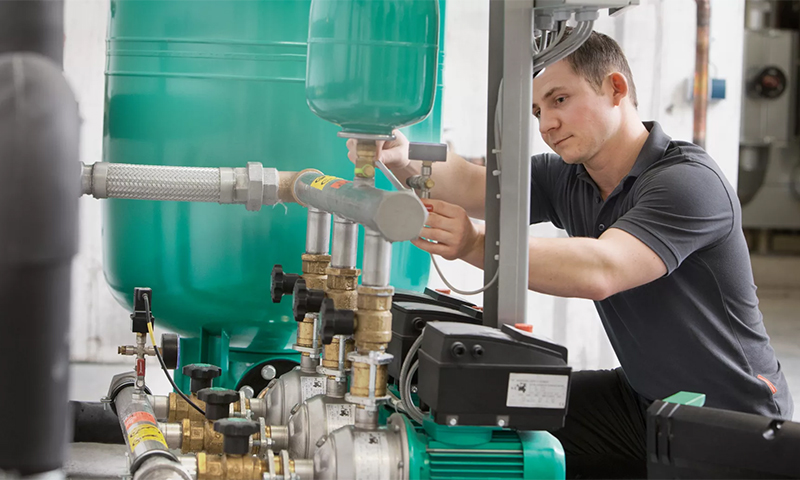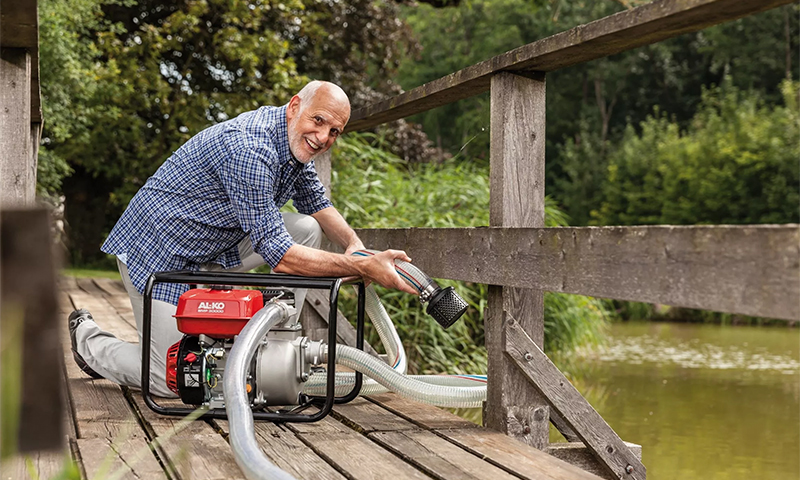There is no need for a gardener or a gardener to explain the importance of a hose for watering - without it, as without hands. But, if before the question was not a choice, since only rubber products were offered, nowadays the range exceeds the limit with its diversity. What is interesting, even experienced gardeners are interested in the question of which flex is better. That is why the article provides information for both amateurs and professionals on the choice of the hose needed to take care of fruit trees, flower beds, lawn and, of course, cultivated plants grown in garden beds.
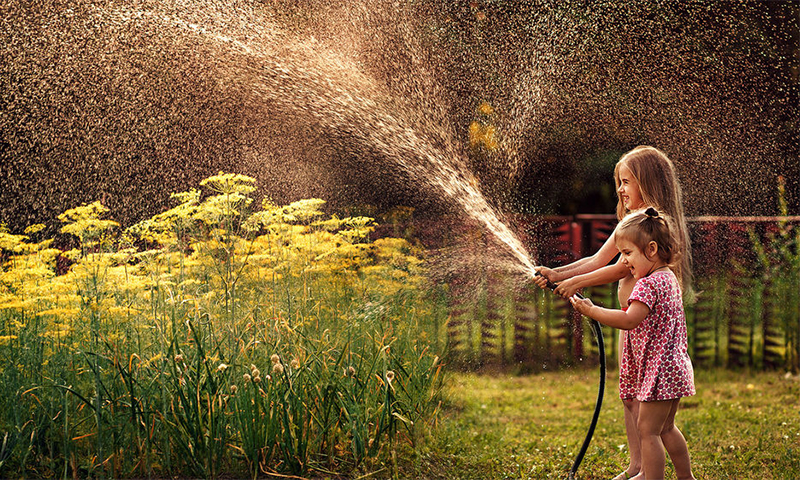
Content:
The best manufacturers of irrigation hoses - which company to choose
There are a lot of watering hoses on the market - they are made by companies that are little known and those that you don’t need to represent. The latter create high-quality goods, are respected by users, moreover, their products are quite affordable.
These include:
- Karcher.
- Gardena.
- Palisad.
- Belamos.
- Quttro Elementi.
Types of watering hoses
Rubber hoses
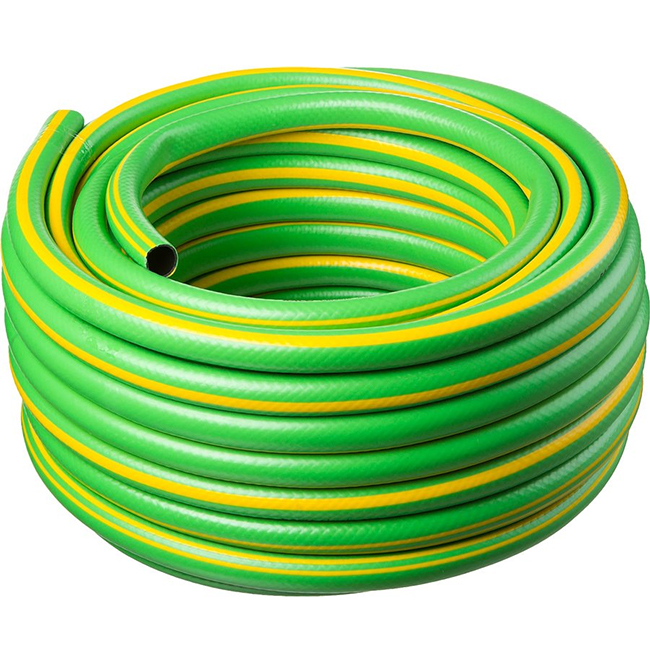
Among different hoses, pressure rubber is considered one of the best. They are reinforced with thread braiding, withstand up to 53 bar of water pressure, serve for about 20 years.
The length of such products ranges from 20 to 200 m, the wall thickness is in the range from 4 to 6 mm, the diameter is usually 1 / 2ʺ, 3 / 4ʺ, 1ʺ (13, 19, 25 mm). Operation is available within wide temperature limits: ‒30… + 90 ° С. In the manufacture of rubber flexible pipes are not always used environmentally friendly raw materials.
Benefits:
- high elasticity and strength;
- resistance to UV rays and significant temperature changes;
- no wringing or twisting;
- affordability and durability.
Disadvantages:
- relatively large weight;
- high percentage of toxic products.
Flexible rubber pipes are suitable for manual and automatic irrigation of cultivated plants and lawn. They are suitable for use in industry and car washes. To supply drinking water is used food version, in which there are no toxins.
PVC hoses
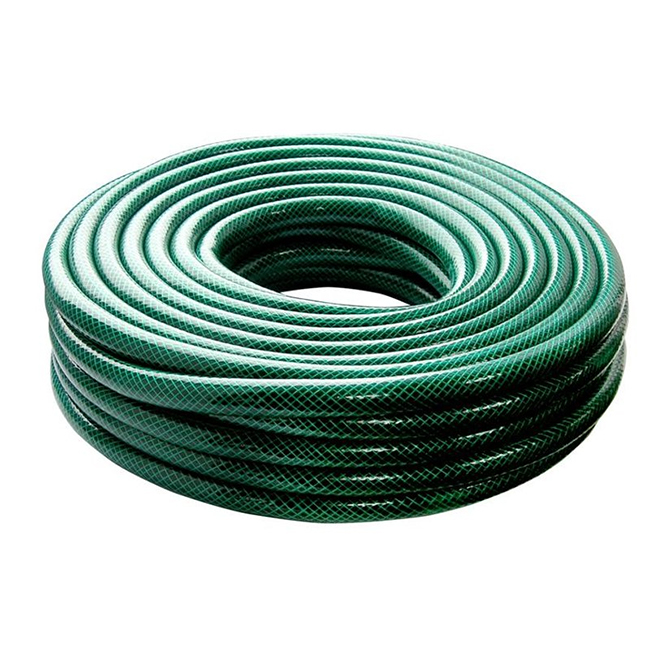
Hose made of polyvinyl chloride is becoming more and more popular. They are produced 1-, 2-, 3-, 4-layer with a cross-shaped and mesh braid - the latter is more preferable.
Versions with 1 layer without amplification are often transparent, which leads to the appearance of algae in the cavity of the pipeline. The products withstand pressure up to 40 bar, function in the temperature corridor ‒25 ... + 60 ° С, are offered in lengths from 20 to 100 and more meters, and are in operation from 5 to 35 years.
Benefits:
- possibility to choose products with different number of layers - with or without reinforcement;
- no bloat, twist and other flaws in the reinforced versions;
- the accessibility of the connection of fragments using special shaped parts;
- environmental safety - polyvinyl chloride does not emit substances harmful to health;
- low weight and low cost modification with 1 layer.
Disadvantages:
- loss of shape of single-layer PVC hoses under the influence of ultraviolet radiation and high pressure;
- the appearance of algae in clear specimens;
- low lifetime of versions with 1 layer - up to 2 years.
Flexible PVC pipelines are used for watering the garden / garden and for drinking. Single-layer products, based on the characteristics, are more often used in ordinary household work.
Silicone counterparts differ little from PVC hoses. The characteristic features of the latter are that any modifications of them do not break down, do not bend, or crack.At the same time, single-layer versions can withstand no more than 5 bar. Outwardly, it is rather difficult to distinguish between polyvinyl chloride and silicone pipes.
Plastic hoses
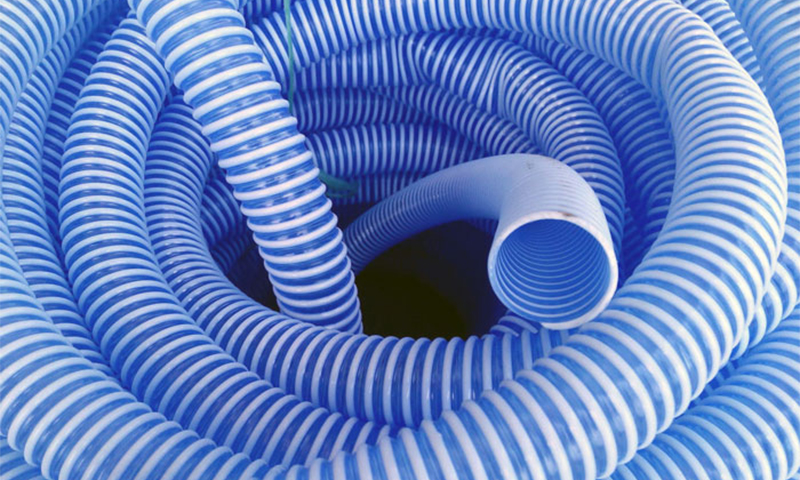
Not very popular plastic hoses. They are offered in lengths from 20 to 50 m or more, in diameter from 1 / 2ʺ to 1ʺ. Products withstand pressure up to 7 bar and temperature up to +65 ° C.
Since plastic does not have special flexibility, the pipes are made in a corrugated form - thanks to this solution, low strength characteristics are further increased. It is possible to work with this hose for a long time in the sun - ultraviolet rays do not affect the material of manufacture.
Benefits:
- resistance to UV radiation and temperature changes;
- lack of conditions for the formation of algae;
- light weight and decorative look;
- optimal price / quality ratio.
Disadvantages:
- fast deformation and easy wrinkling when bending;
- formation of limescale from inside;
- short service life - up to 2 years.
Flexible pipes made of plastic are suitable for watering the garden and vegetable garden, as well as garden land. Since they are not durable, they are used as temporary fixtures in country plots, farms and greenhouses.
For durability, plastic products are similar to nylon, which are also operated for no more than 2 years. The fragility of the latter is caused by instability to temperature fluctuations and the inability to withstand high pressure. Among the advantages of nylon pipelines: lightness, flexibility and durability.
Irrigation hose selection options
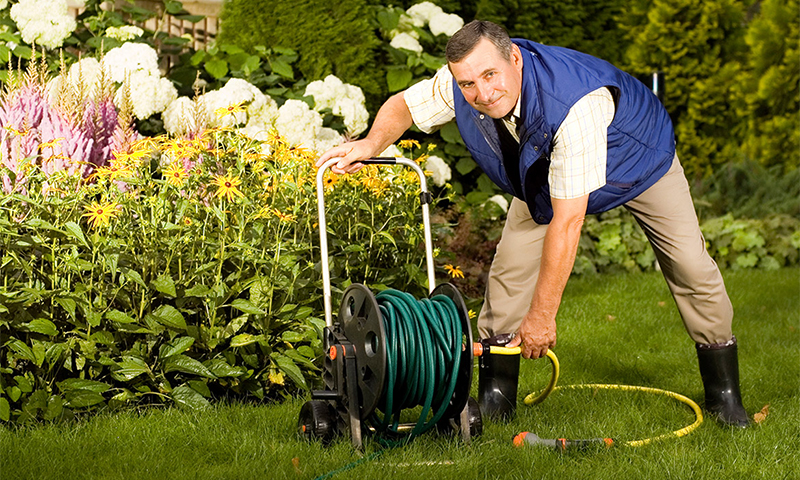
Specifications
Be sure to determine the technical characteristics:
1. The length is measured and represents the distance from the water intake point to the irrigation site.
2. The diameter of the flexible pipe is taken according to the diameter of the connecting tap and, as a rule, is from 1 / 2ʺ to 1ʺ.
3. To determine the working head you need to know the pressure at the entrance and its loss in length (approximately 1 m vertically to 7 ... 10 m horizontally). This parameter should be combined with the corresponding specified in the passport.
4. Also taken into account is the working temperature, within which the product must fully function.
Production material
The manufacturing material is selected, including:
1. Number of layers;
2. The presence of reinforcement;
3. Degree of transparency;
4. Performance characteristics.
Some subtleties are taken into account:
1. 1 layer is designed for approximately 5 bar head;
2. Softer tires last longer;
3. Nylon braid durable vegetable;
4. Mesh reinforcement is more efficient than cruciform;
5. Transparent tubes are prone to algae overgrowing;
6. As the number of layers grows, the operational properties improve and the cost increases.
Design features
Attention are subject to models with structural features.
These include:
1. Combining modifications for drip irrigation;
2. Sprinklers creating spraying of different intensity;
3. Elongated spiral and Xhose versions.
Storage features
To extend service life, the product must be properly stored.
1. It is twisted only after complete draining of water.
2. Stowed in the utility room on the shelf, the height of which should not be accessible to rodents.
3. It is desirable that in the storage area in winter was above zero temperature.
Which watering hose to choose
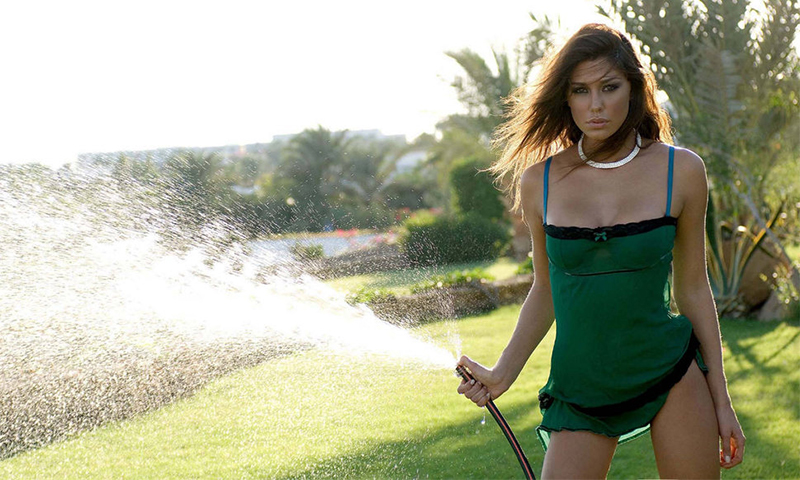
1. The most common and practical - rubber and PVC or silicone reinforced. The former can be created from recycled materials and be toxic - they are suitable for irrigation. For drinking water supply only food versions are suitable. The second and third are environmentally friendly.
2. Plastic corrugated and nylon devices are short-lived, but cheap, so it is advisable to keep them in reserve and use them periodically. If you intend to use, you need to consider that they are designed for pressures up to 5 bar.
3. To ensure a greater supply of water per unit of time, a diameter of 3 / 4ʺ, 5 / 8ʺ, 1ʺ is selected.If the pressure is up to 2 bar, the optimum size is 1 / 2ʺ.
4. For convenience of use the cart with the coil is in addition acquired. Alternatively, you can simply buy a stretching spiral version or a modification like Xhose, as a result, comfortable watering of the flower bed will be provided.
5. If irrigation is needed, the best solutions are: flowing hoses with micro-holes along the entire length and special flexible drip irrigation pipes with 3 channels. They can be laid at the roots of plants on the surface of the earth, and in its thickness.
6. To simulate natural irrigation, sprinklers with a nozzle are bought - such products work in several effective modes, including automatic.
How much is a hose for watering
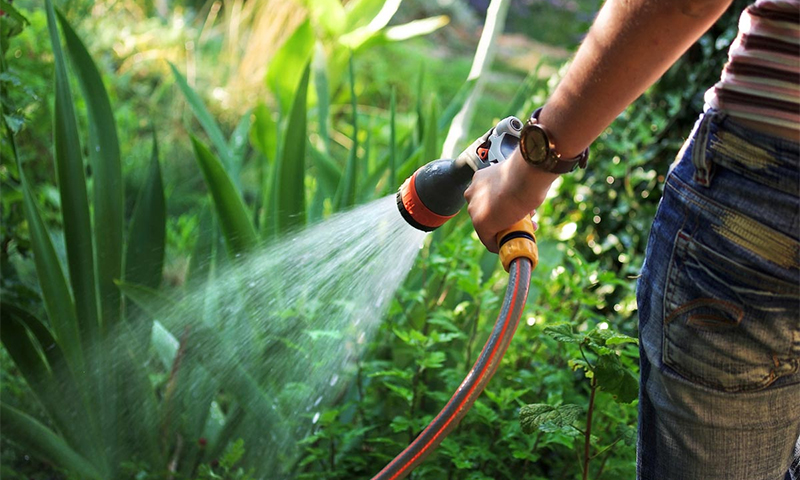
The cost of flexible pipelines for irrigation depends on the diameter, wall thickness, working pressure, materials of manufacture, the number of layers, the presence of reinforcement, as well as the names of the brand and the country of manufacture.
1. Rubber - Karcher PrimoFlex: 1 / 2ʺ, 20 m, 24 bar, reinforced. 39.5 ... 57.2 rubles / pm
2. PVC - Gardena Classic: 3 / 4ʺ, 20 m, 22 bar, reinforced. 73.5 ... 91.0 rubles / pm
3. Plastic - LEPSE: 3 / 4ʺ, 20 m, corrugated. 23.0 ... 25.0 rubles / pm
4. Silicone - Caliber: 3 / 4ʺ, 25 m, 2 bar, reinforced. 28.8 ... 32.4 rubles / pm
It will be interesting to friends too




